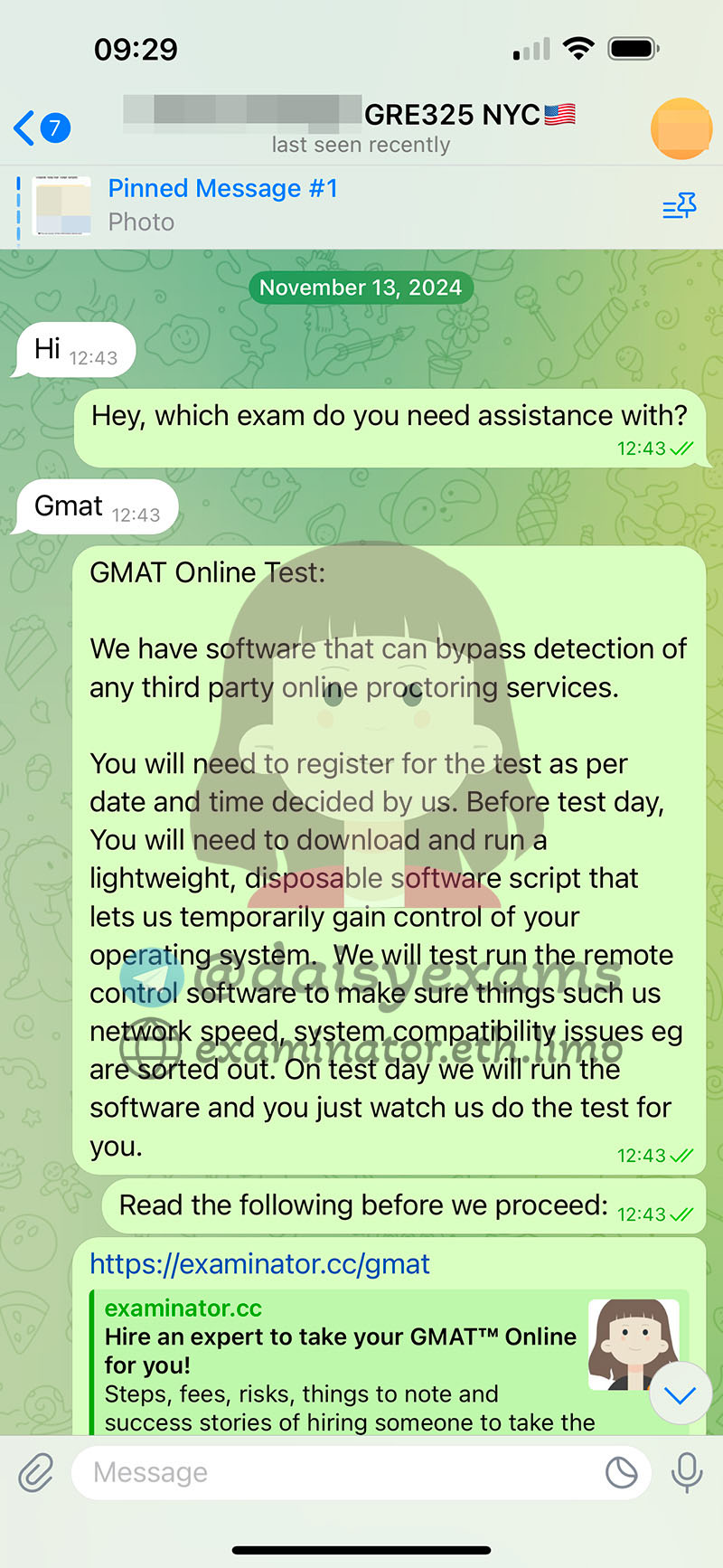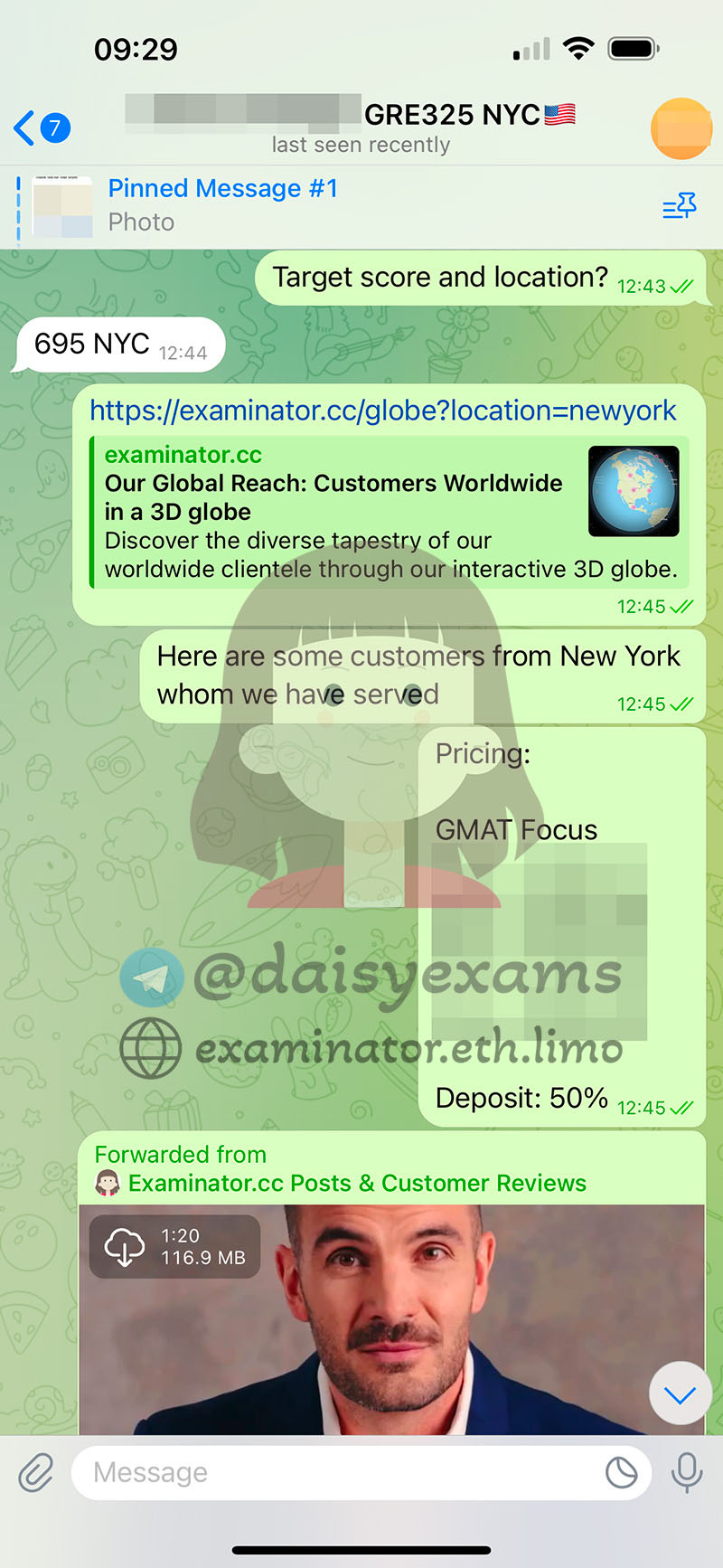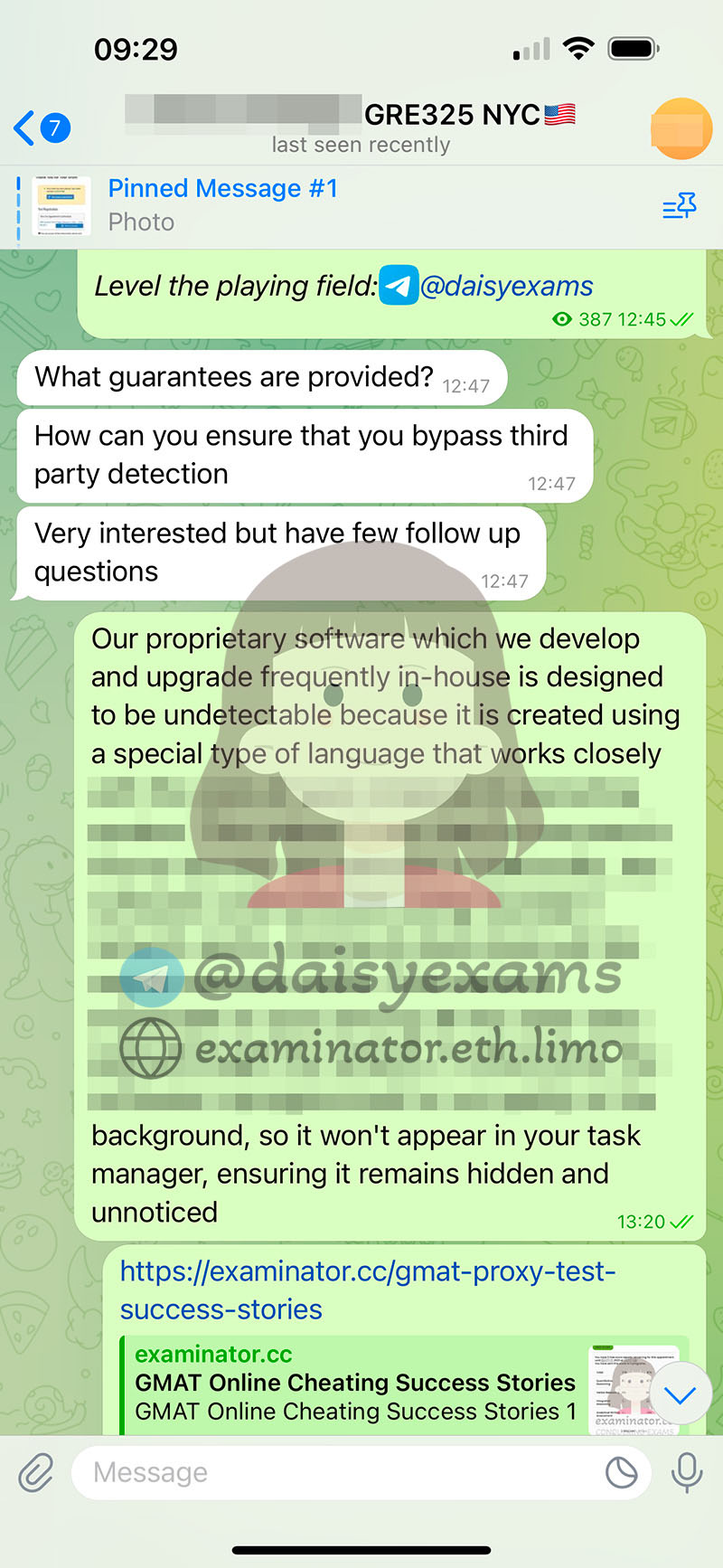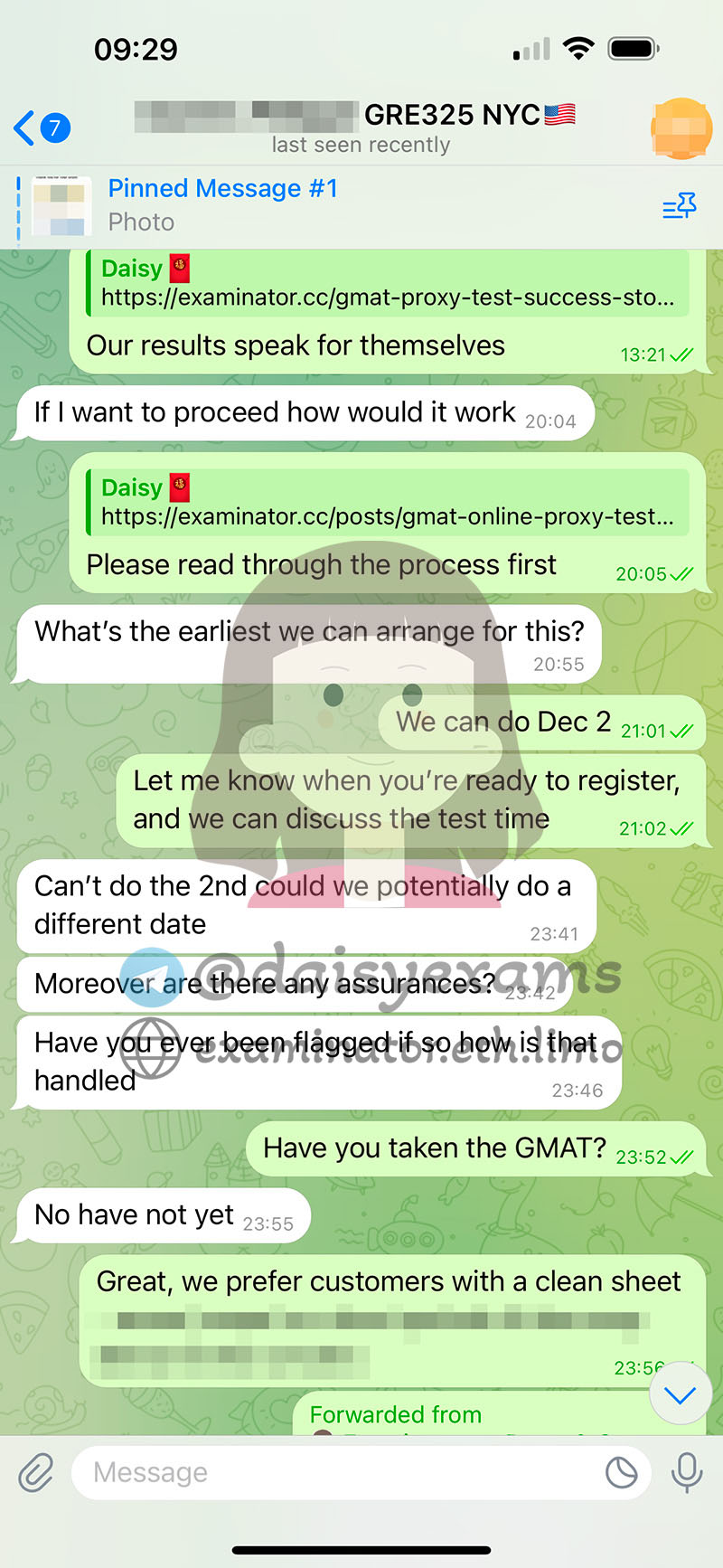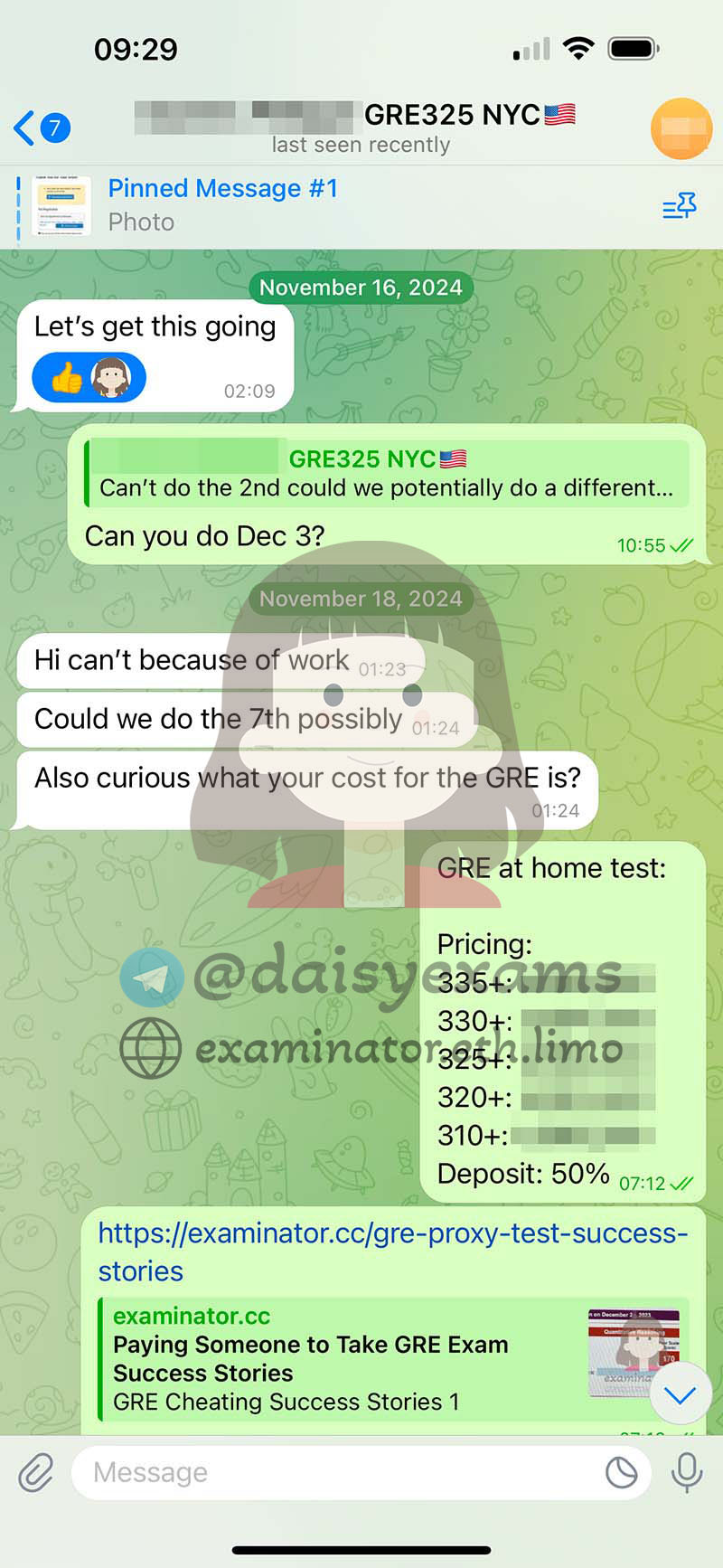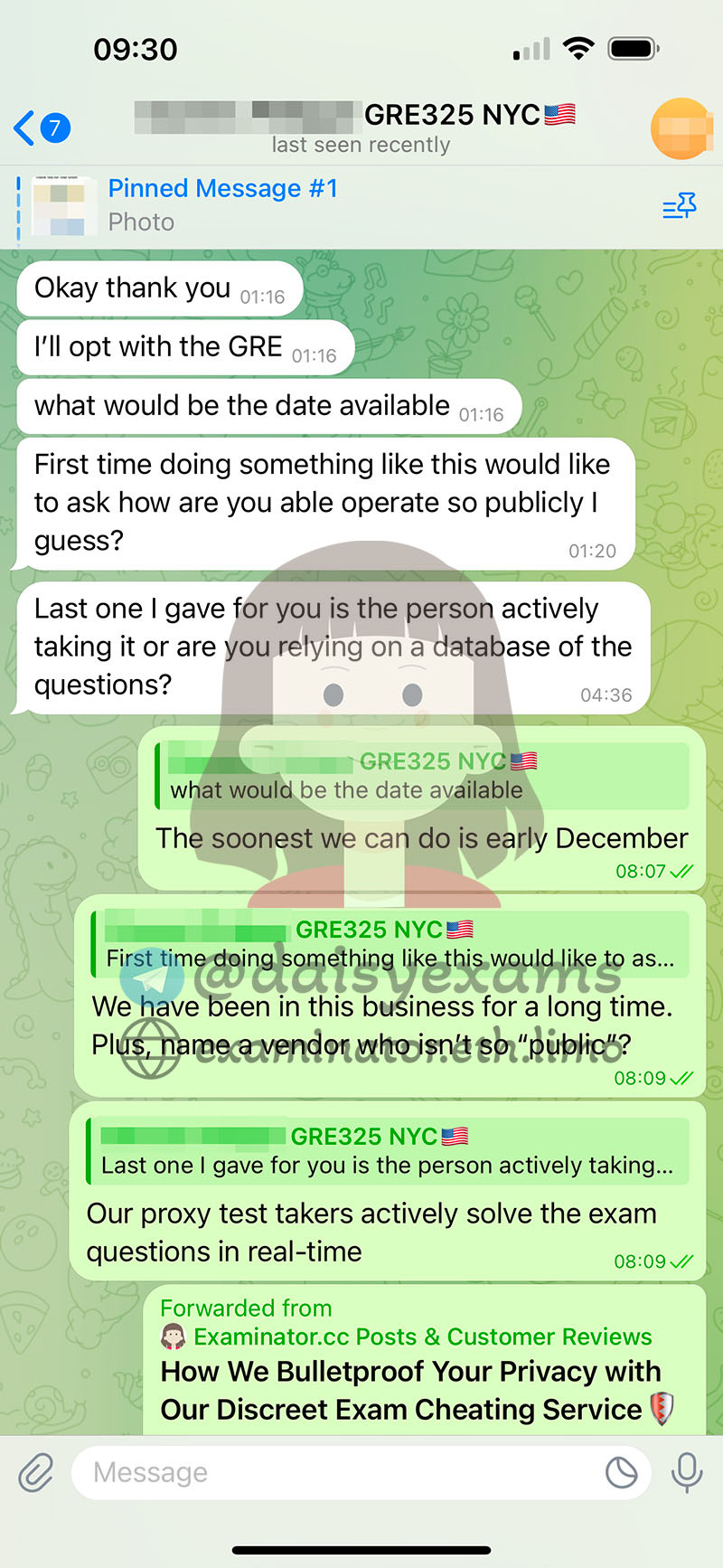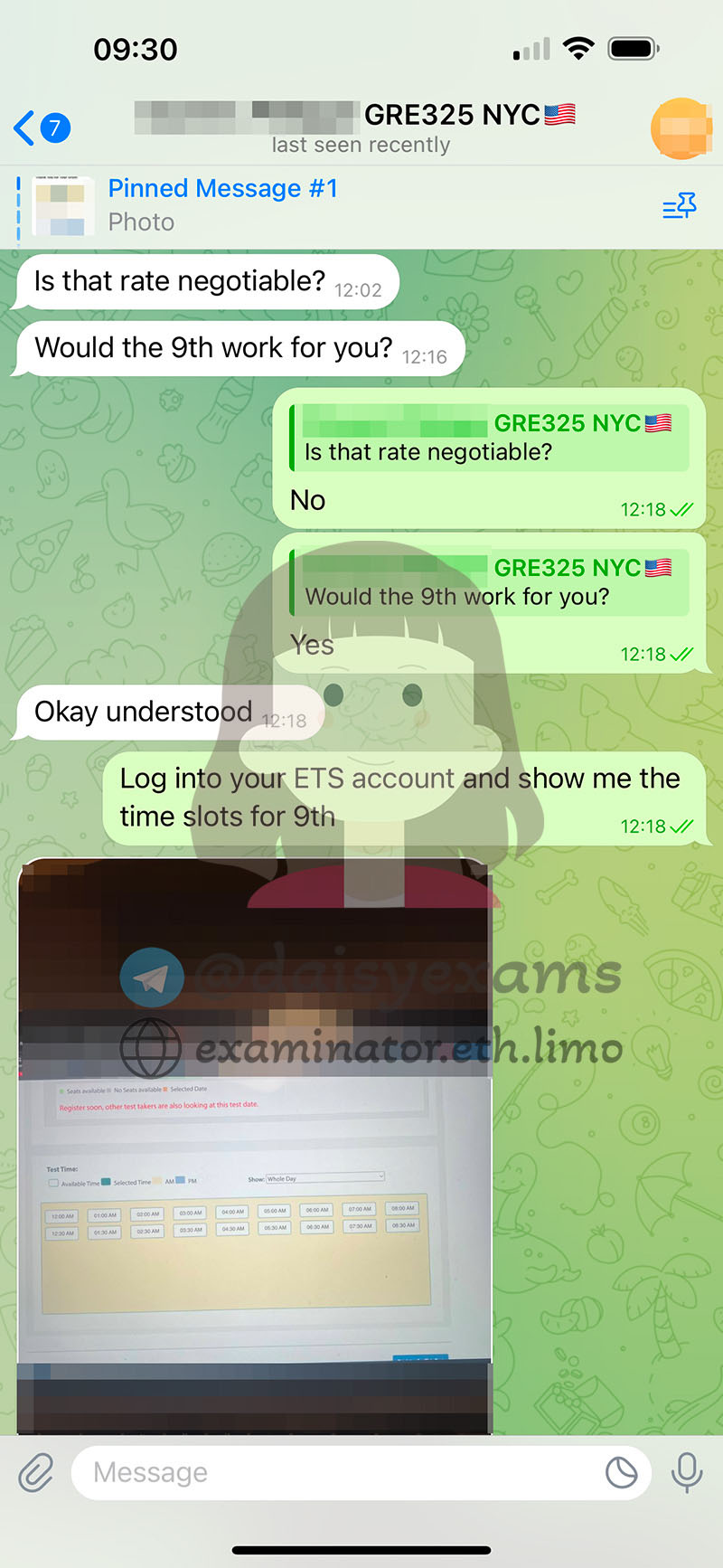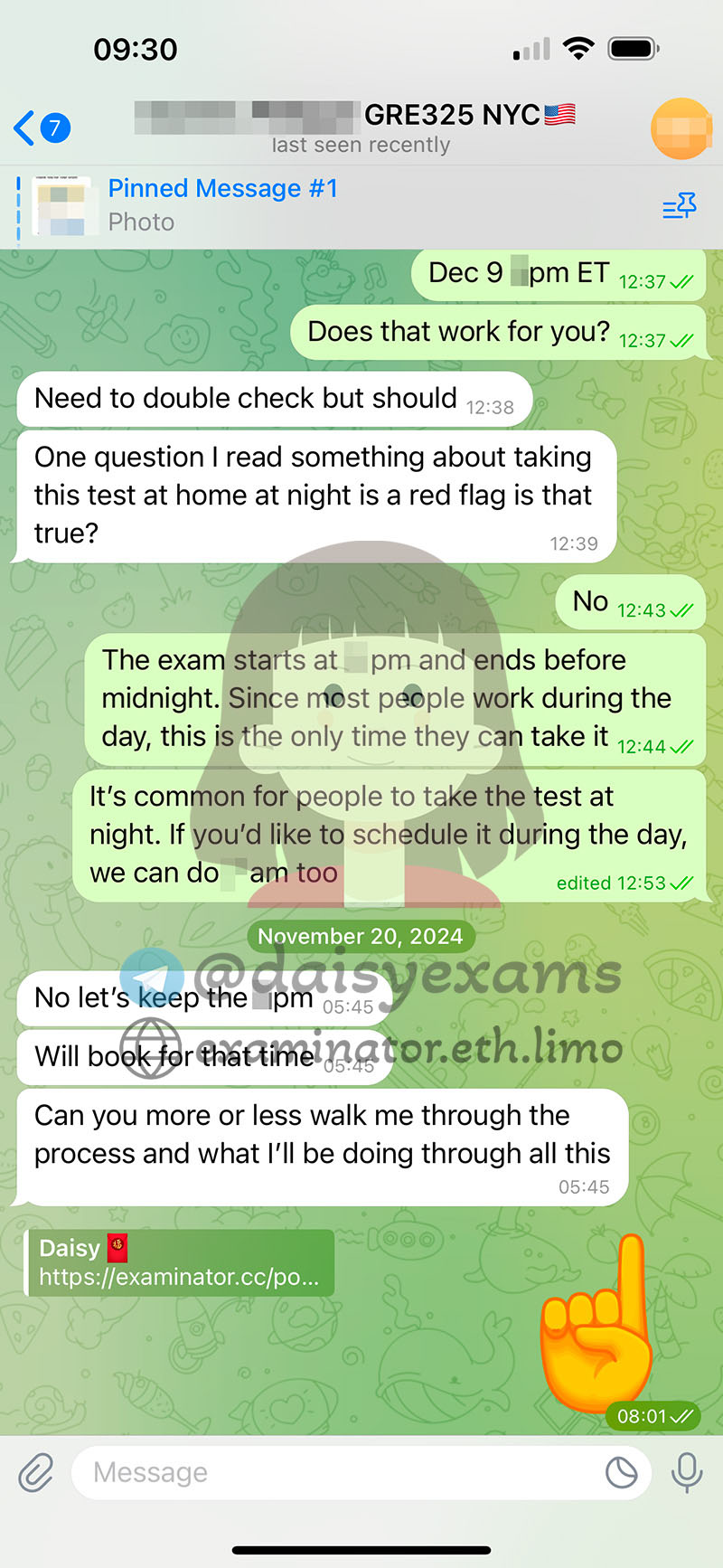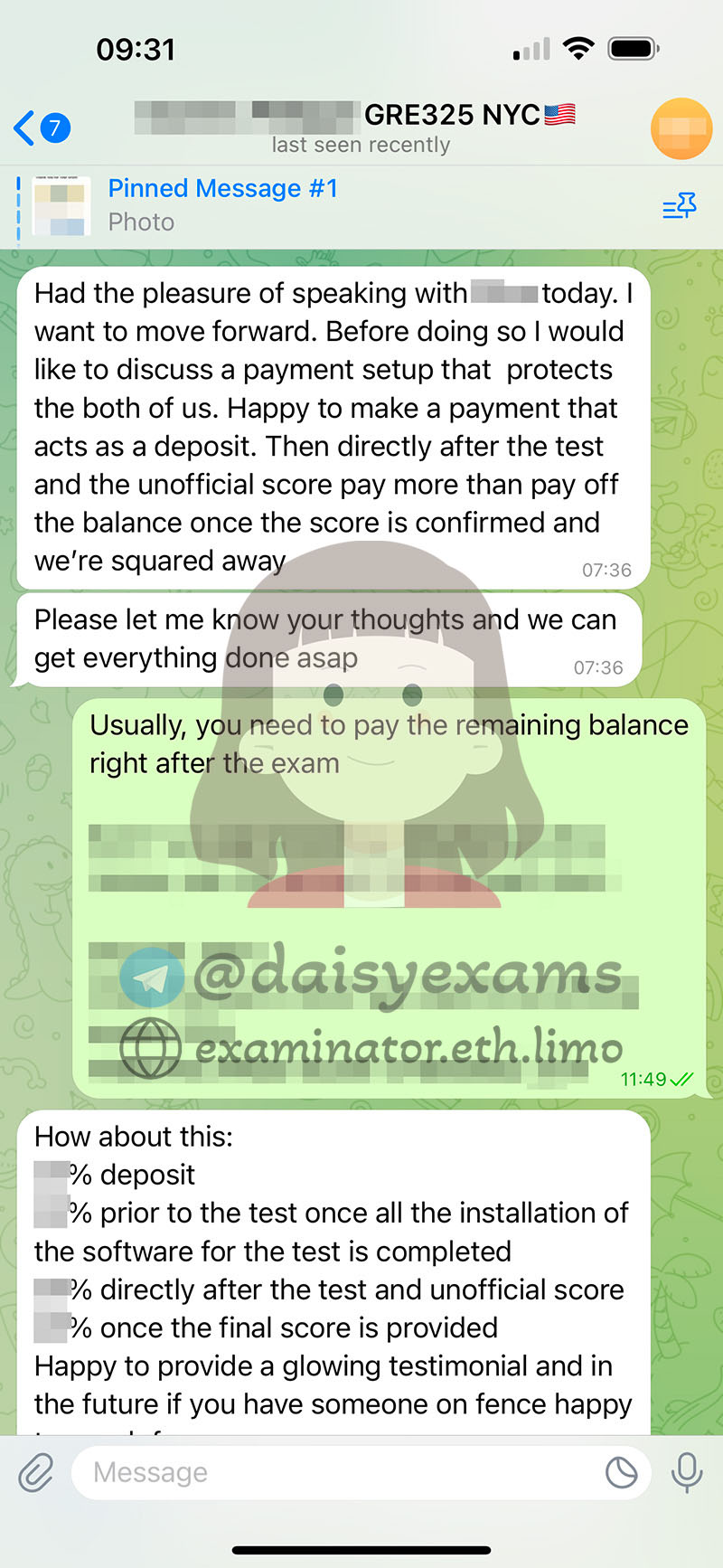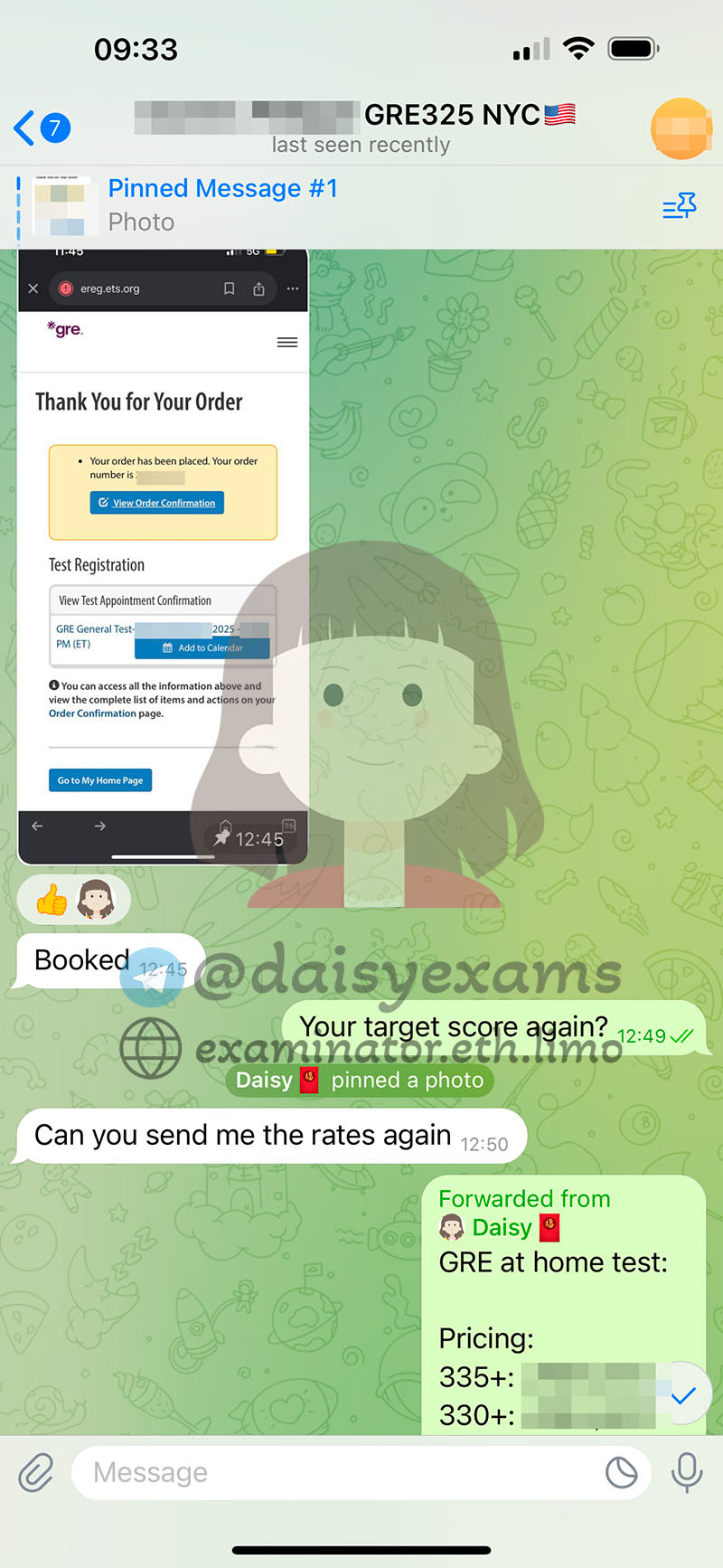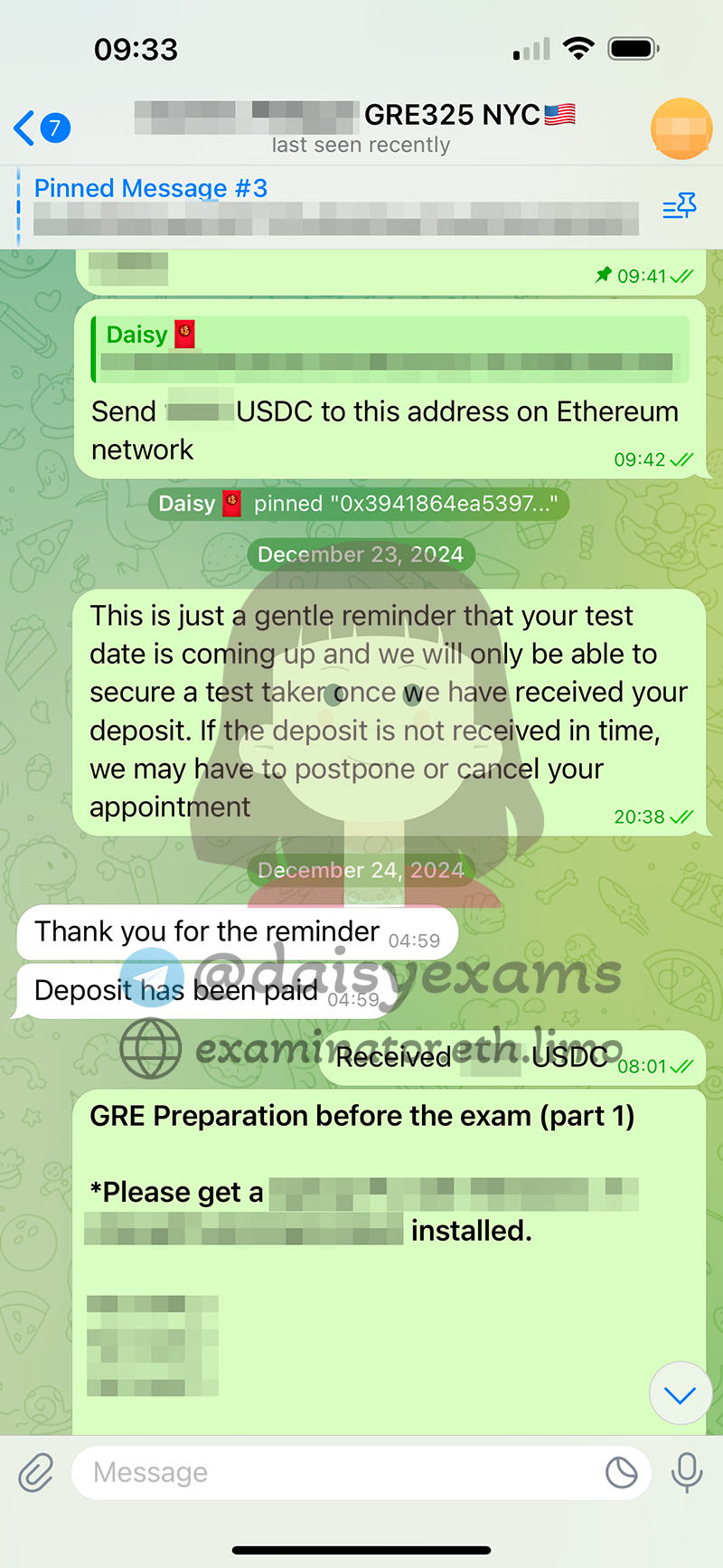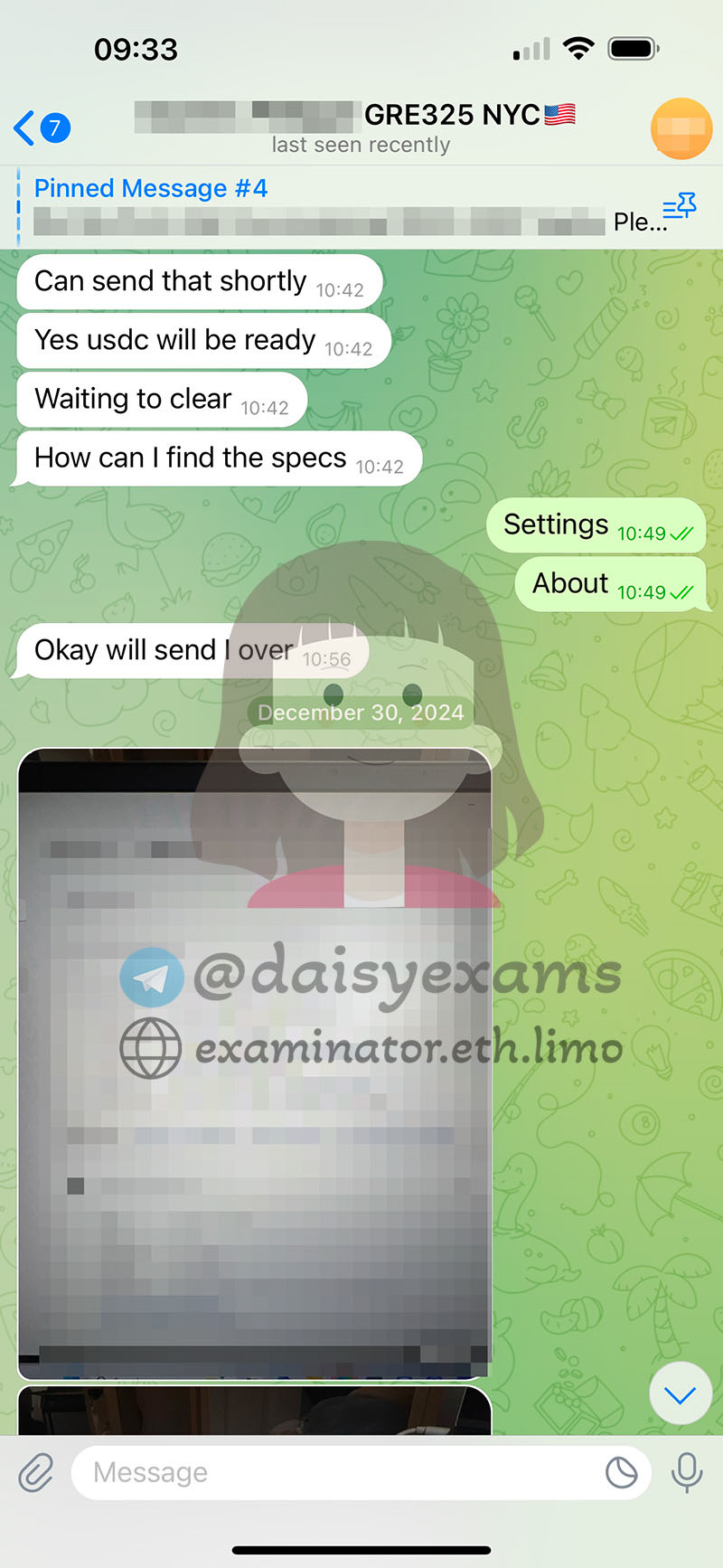
GRE Cheating
🇺🇸Case Study: How a Highly Skeptical U.S. Customer Overcame Examinator 'Scam' Accusations and Achieved GRE Success
Update (March 21, 2025): The customer has received multiple school acceptances.

A U.S.-based customer, very cautious and skeptical, reached out to us, Examinator, for GRE cheating services. Even though they needed the service, they hesitated at many points, doing a lot of research before deciding to move forward. In the end, they successfully reached their target GRE score with our help.
This customer is a perfect example of the "don't trust, verify" mindset, and their thorough verification process is worth studying.
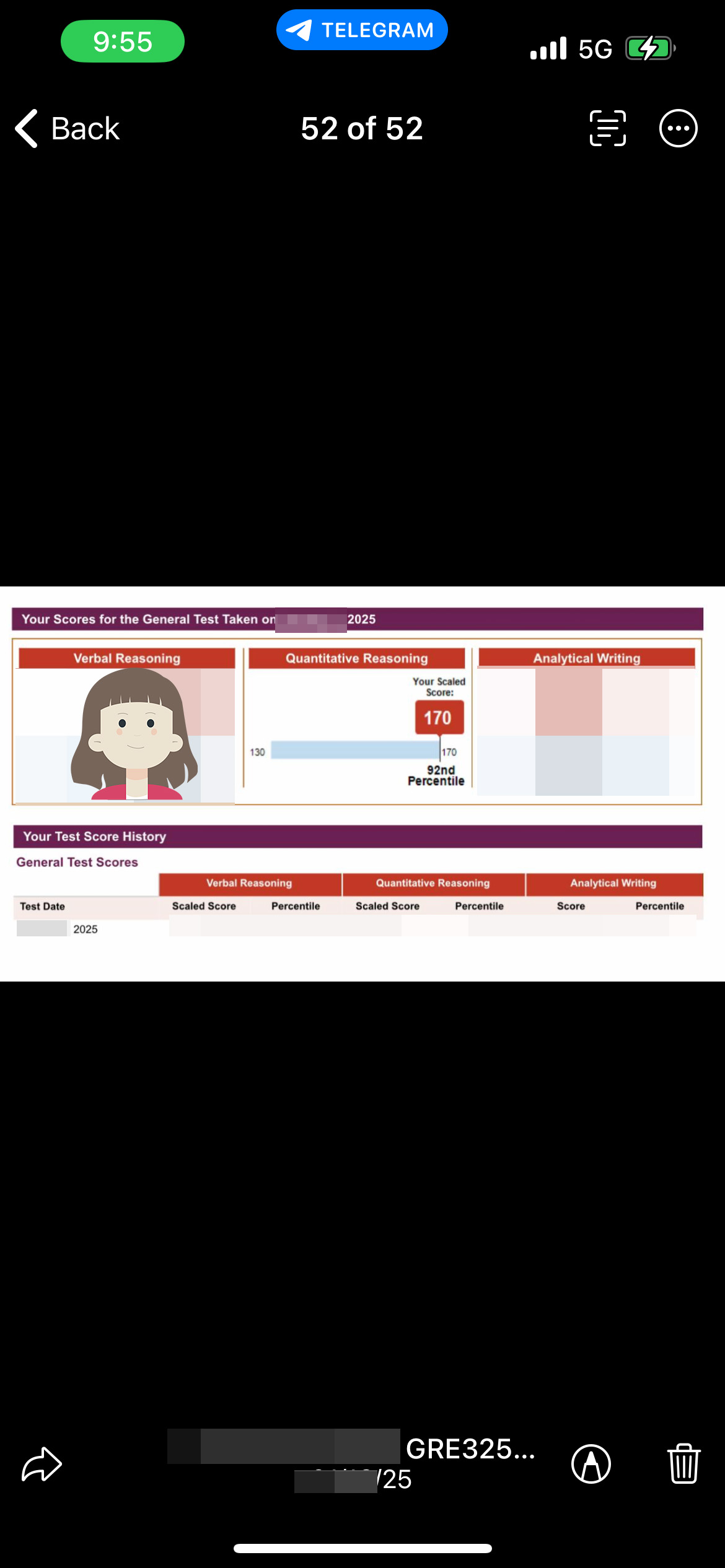
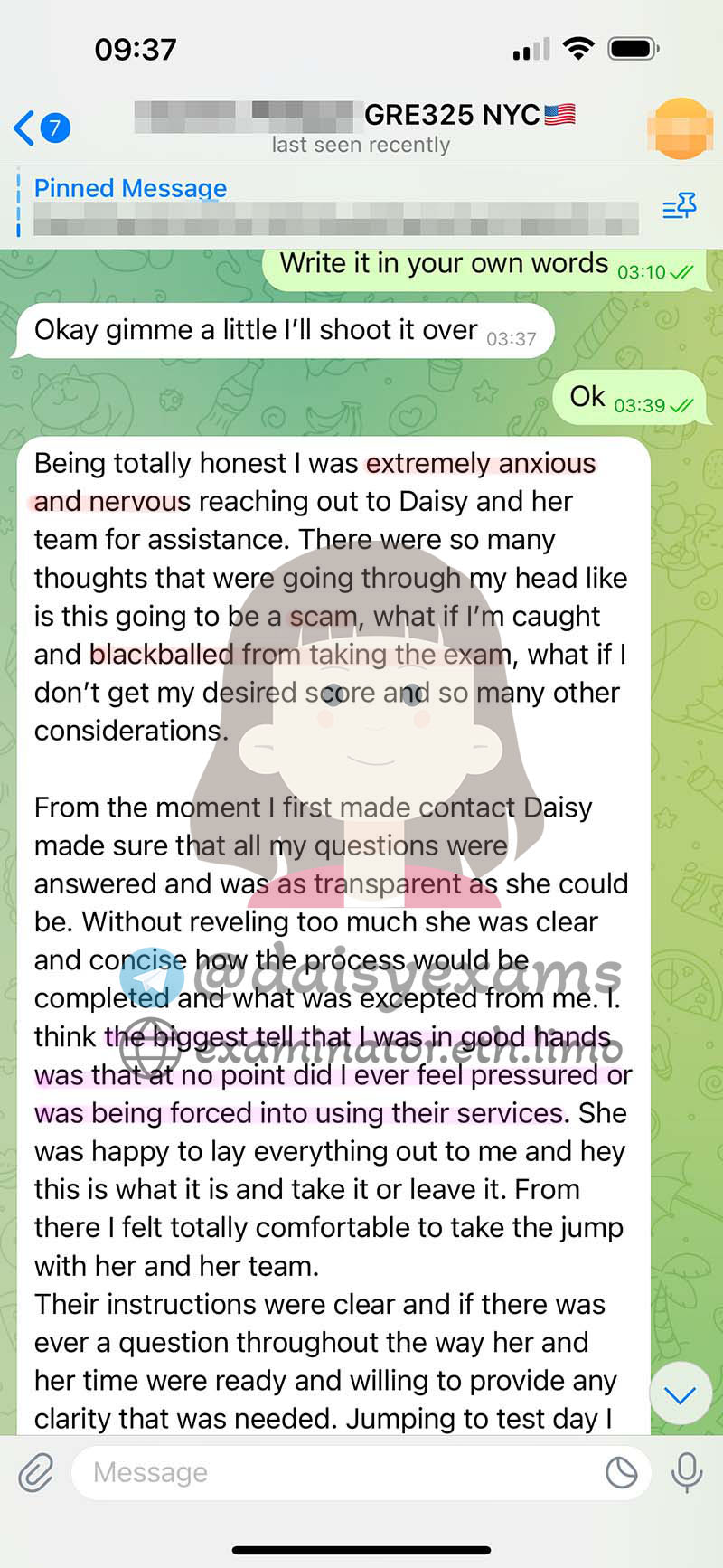

Challenges Faced
Skepticism and Delayed Registration
We provided the customer with three possible test dates, but they delayed registering due to concerns about legitimacy. Even after multiple reassurances and details about the process, they were still hesitant.




Worries About the GRE Proxy Testing Outcome
The customer was afraid that things might not go as planned and that they wouldn’t get their desired score. They also believed that once the payment was made in cryptocurrency, it would be non-refundable (which is incorrect—we do offer full and partial refunds). We assured them that we have a strong track record and would do everything possible to help them succeed. To ease their worries, we even offered a 0% upfront payment option, with the condition that they would pay 40% more than the standard price after achieving their target score.
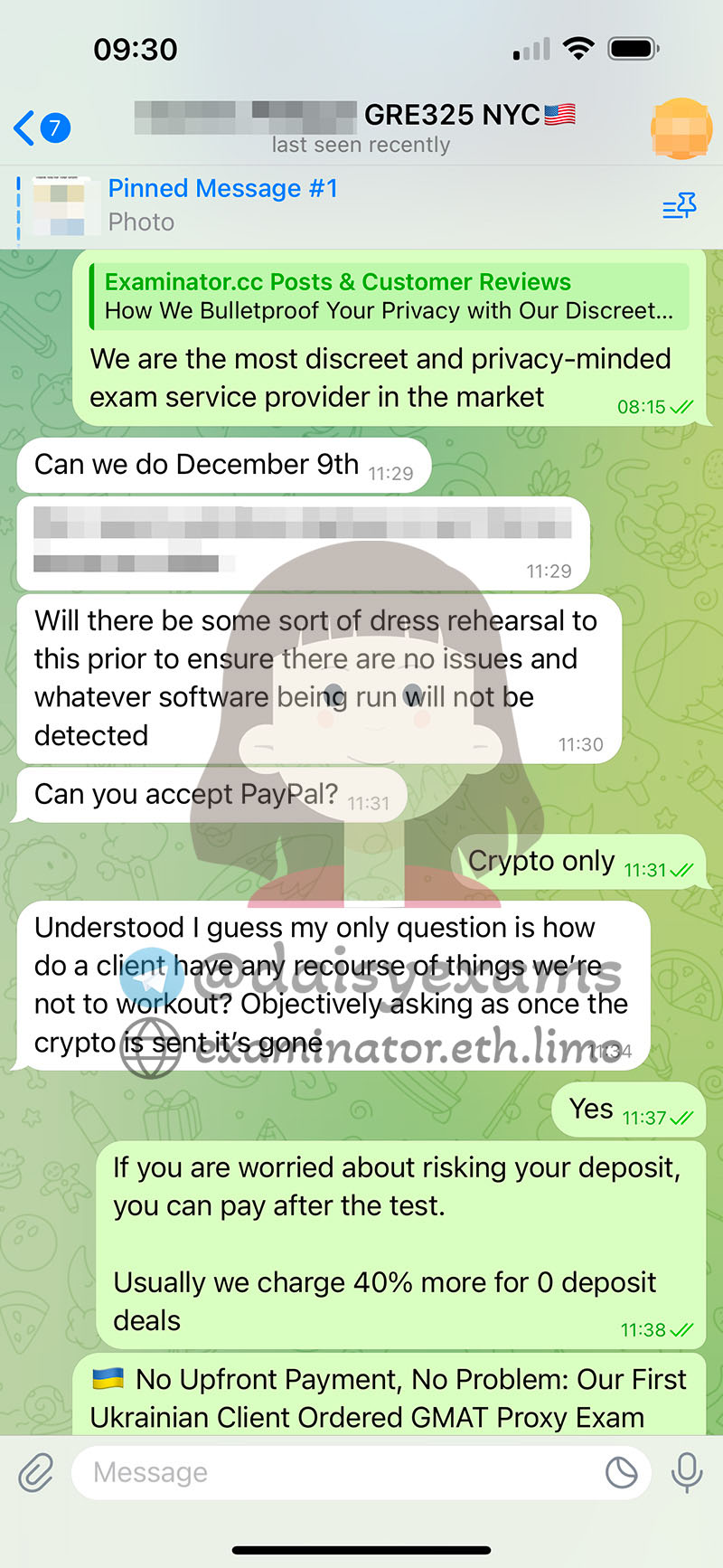
Questions About the “Phone Method”
During their research, the customer found old case studies on our website mentioning the use of hidden phones for communication.
We clarified that this phone method is outdated and no longer used, and that our current approach is fully secure and up to modern standards.
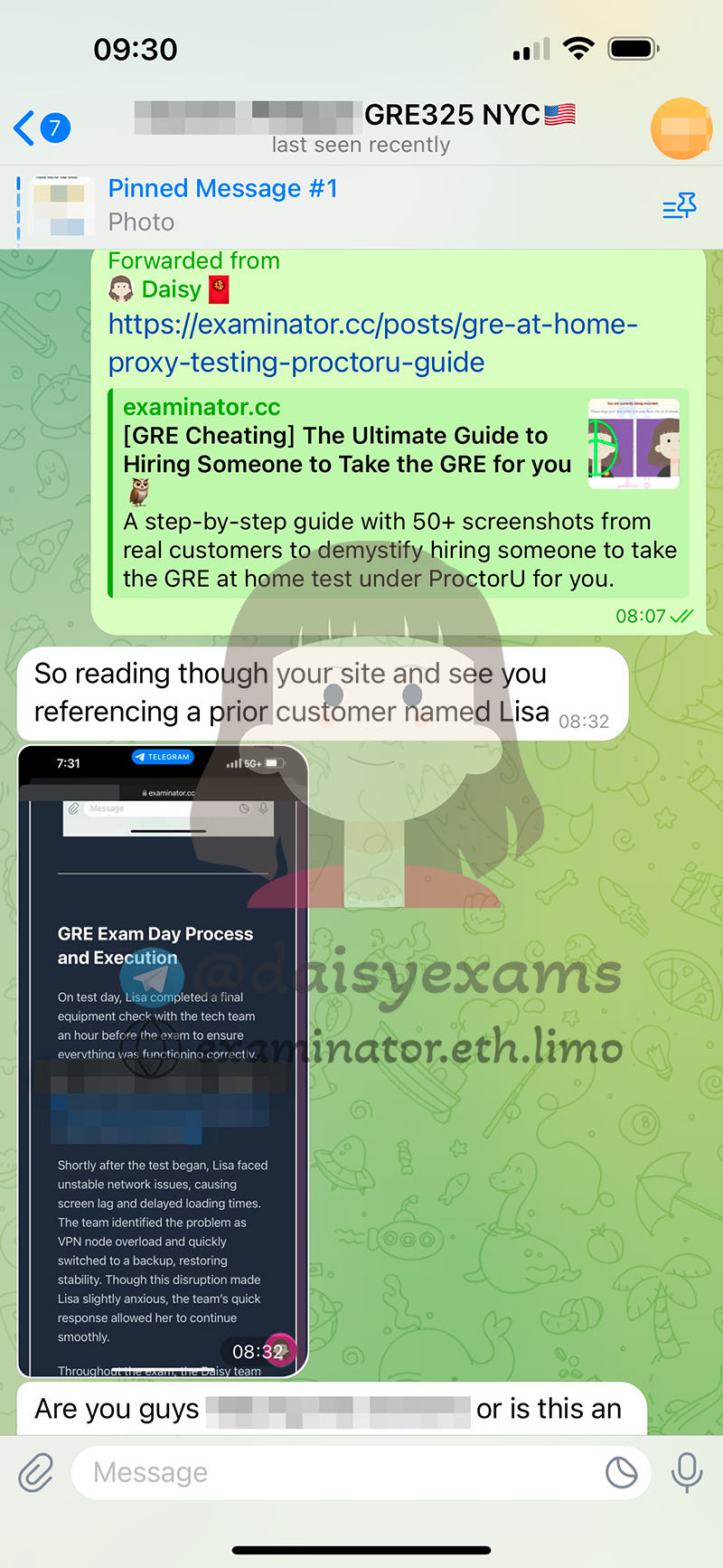
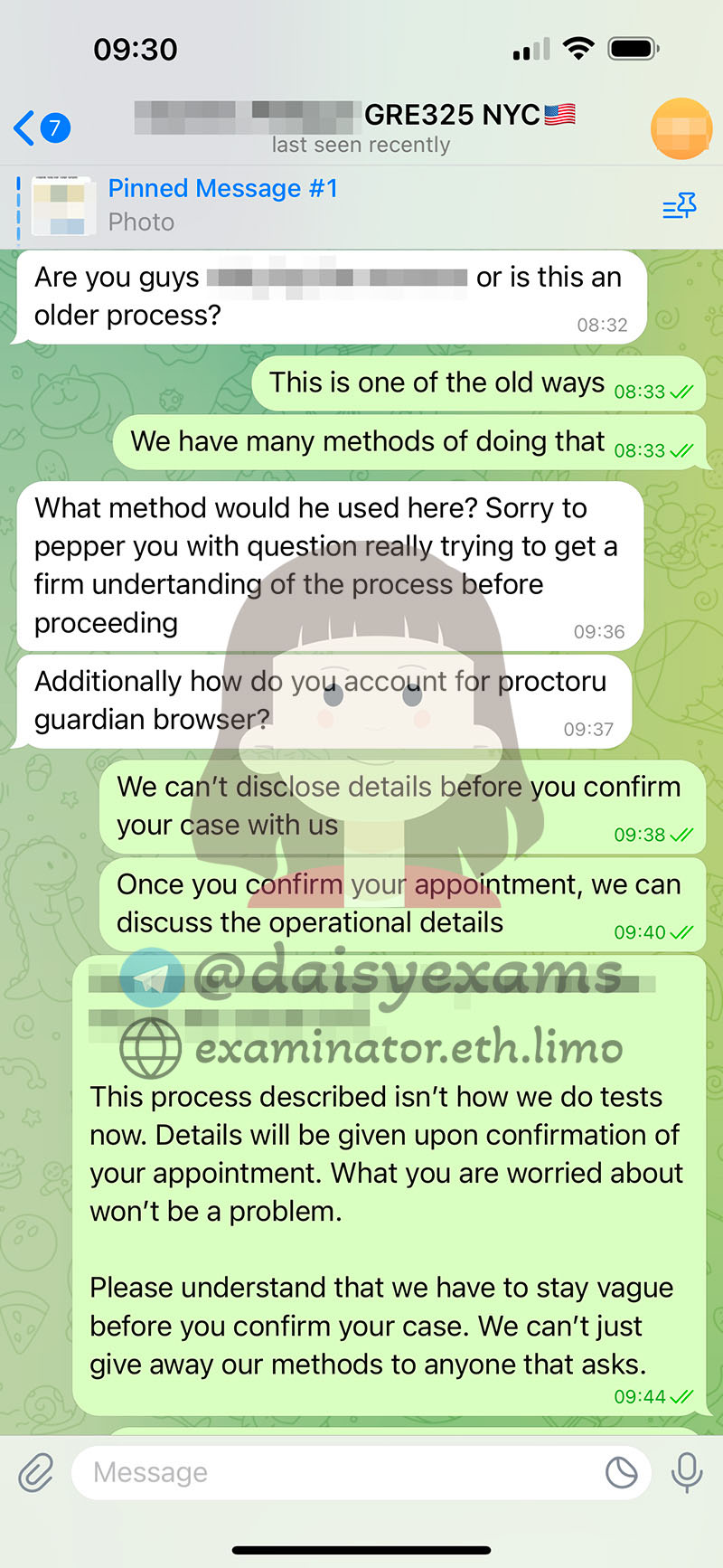
Seeking Reassurance From Past Customers
Still unsure, the customer asked to speak with someone who had used our services before. We arranged this, allowing them to hear firsthand from a previous client about their experience. This helped ease their concerns.
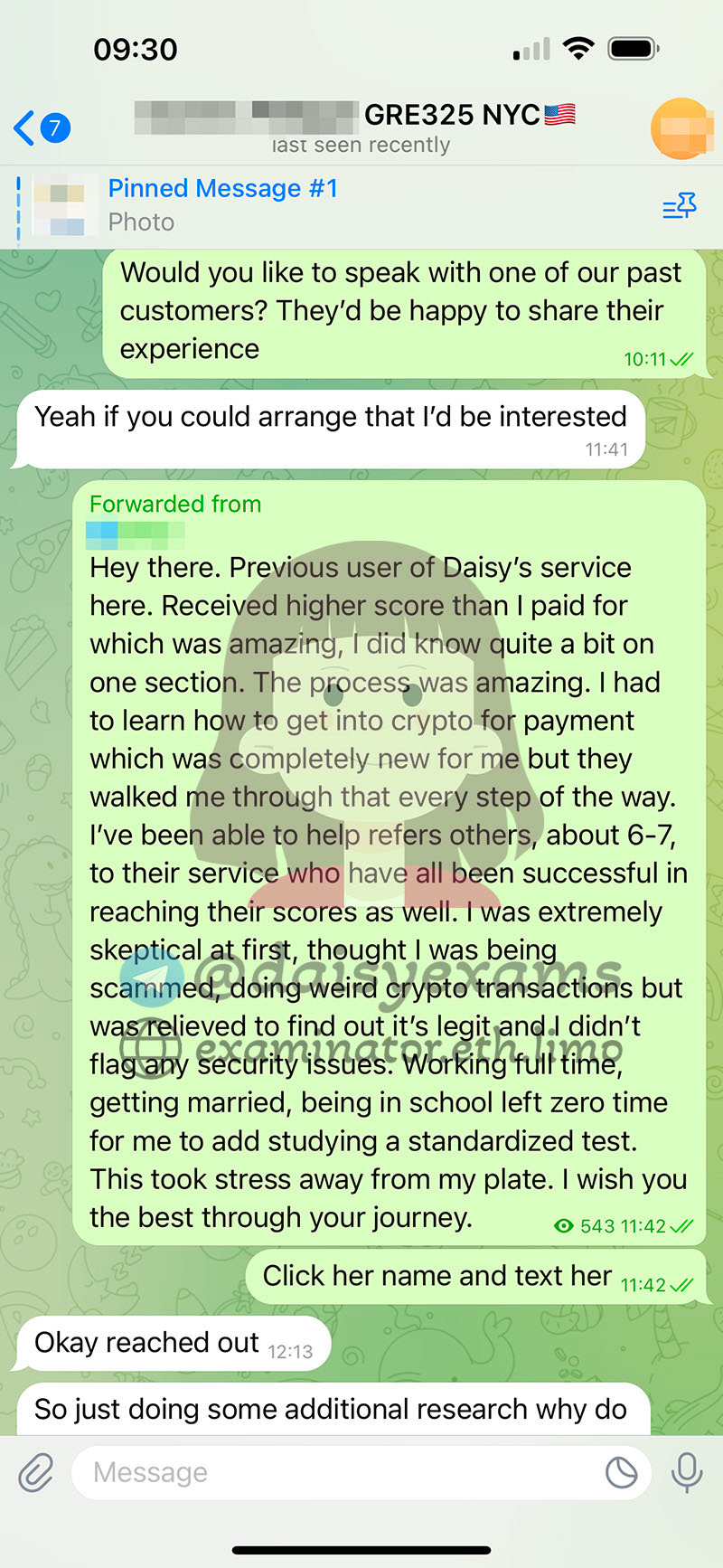
Are Multiple Websites a Red Flag?
While waiting for a response from a past customer, the skeptical client continued their research and asked about our two websites—one ending in ".cc" and the other in ".co." They thought this was a red flag. We explained that the two websites serve different audiences (one is in Chinese, the other in English) and are clearly linked on their homepages. There was nothing hidden about it.
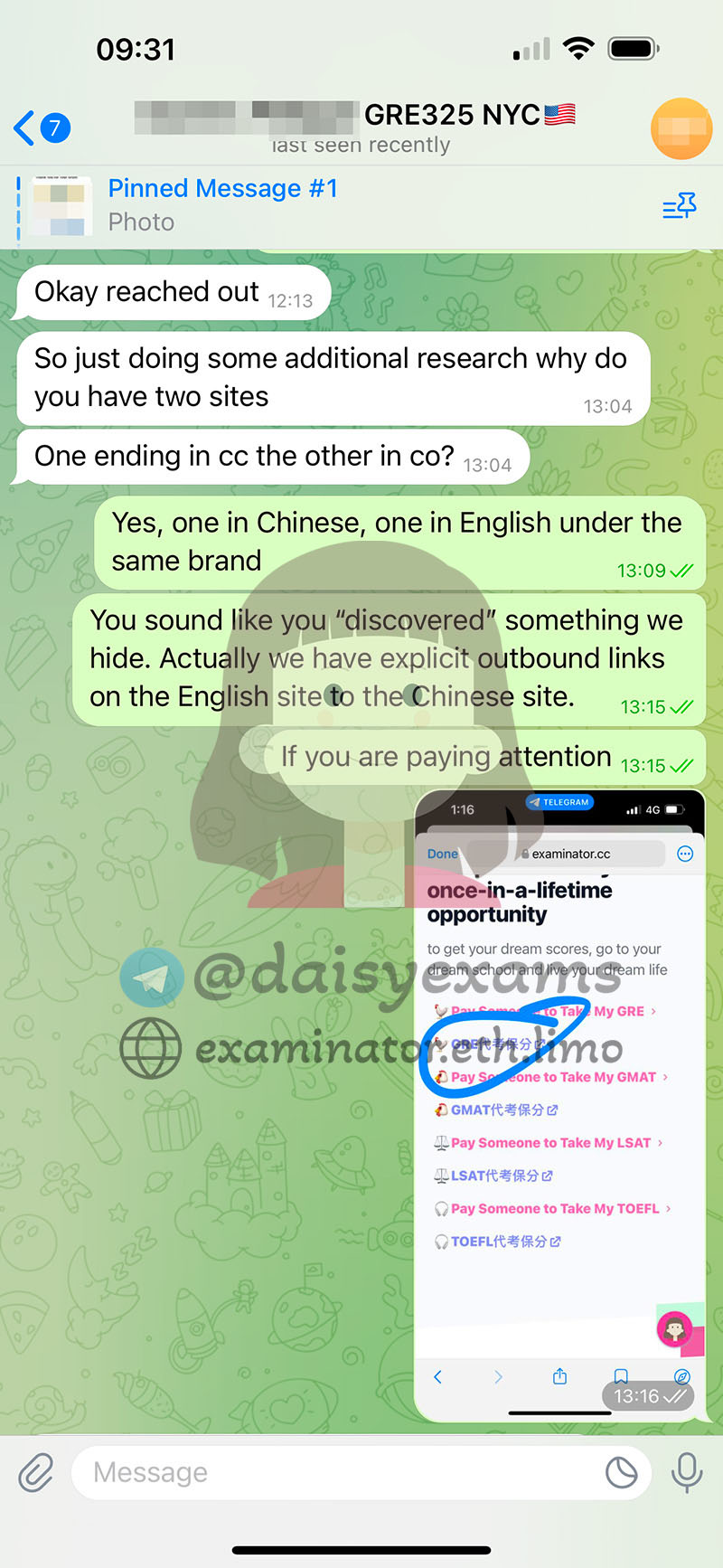
While it’s normal for a company to have multiple domains, it’s suspicious when different brands are secretly controlled by the same entity so if one brand goes rogue and exposed it can be easily discarded.
A Hit Piece From Competitor Scam Sites
One of the negative articles the customer found was a hit piece published by testhelper.org, a Chinese scammer previously exposed for running multiple scamming websites under different names. The article falsely accused us of being a scam, but ironically ended by promoting one of testhelper.org’s own websites. We pointed out the clear conflict of interest and the lack of real evidence in the accusations, which helped clear up the customer’s doubts.


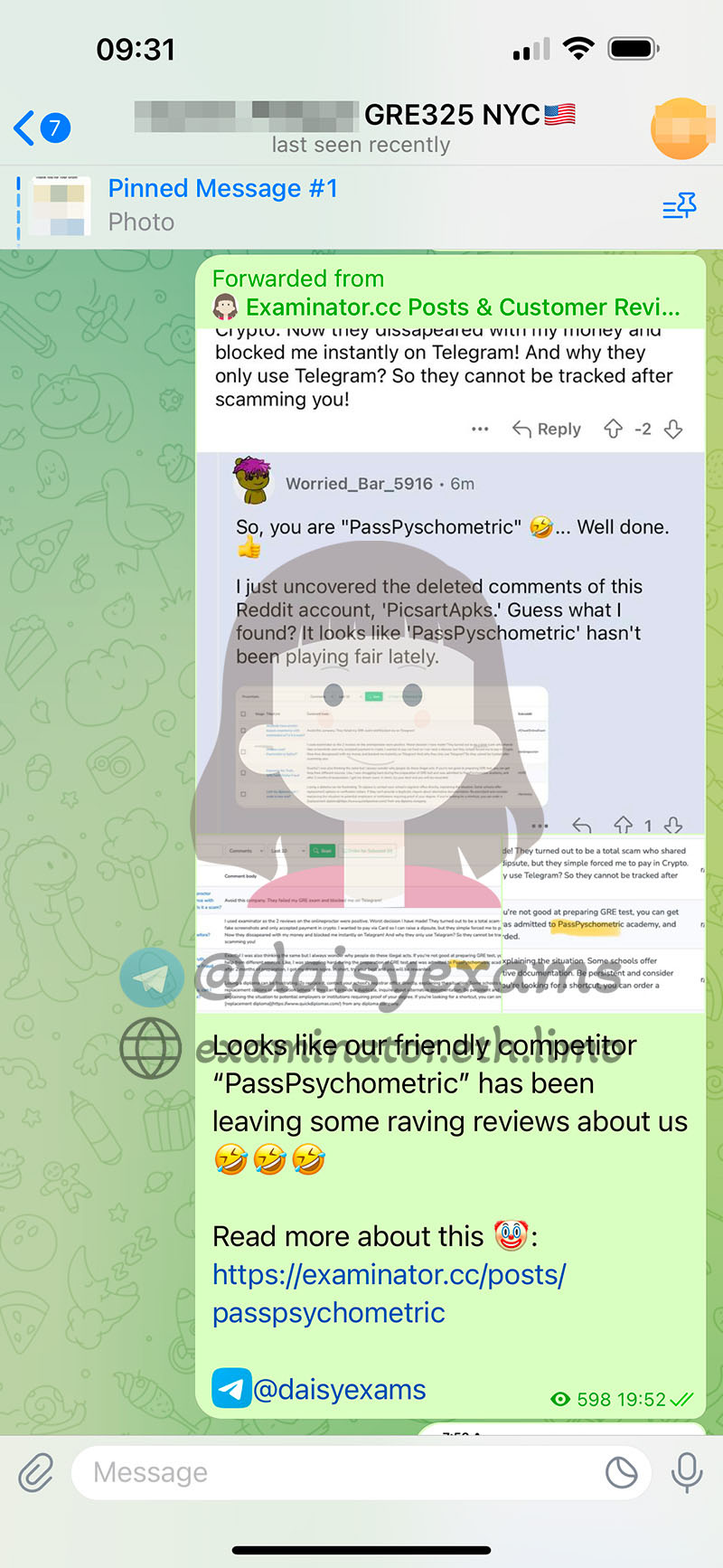
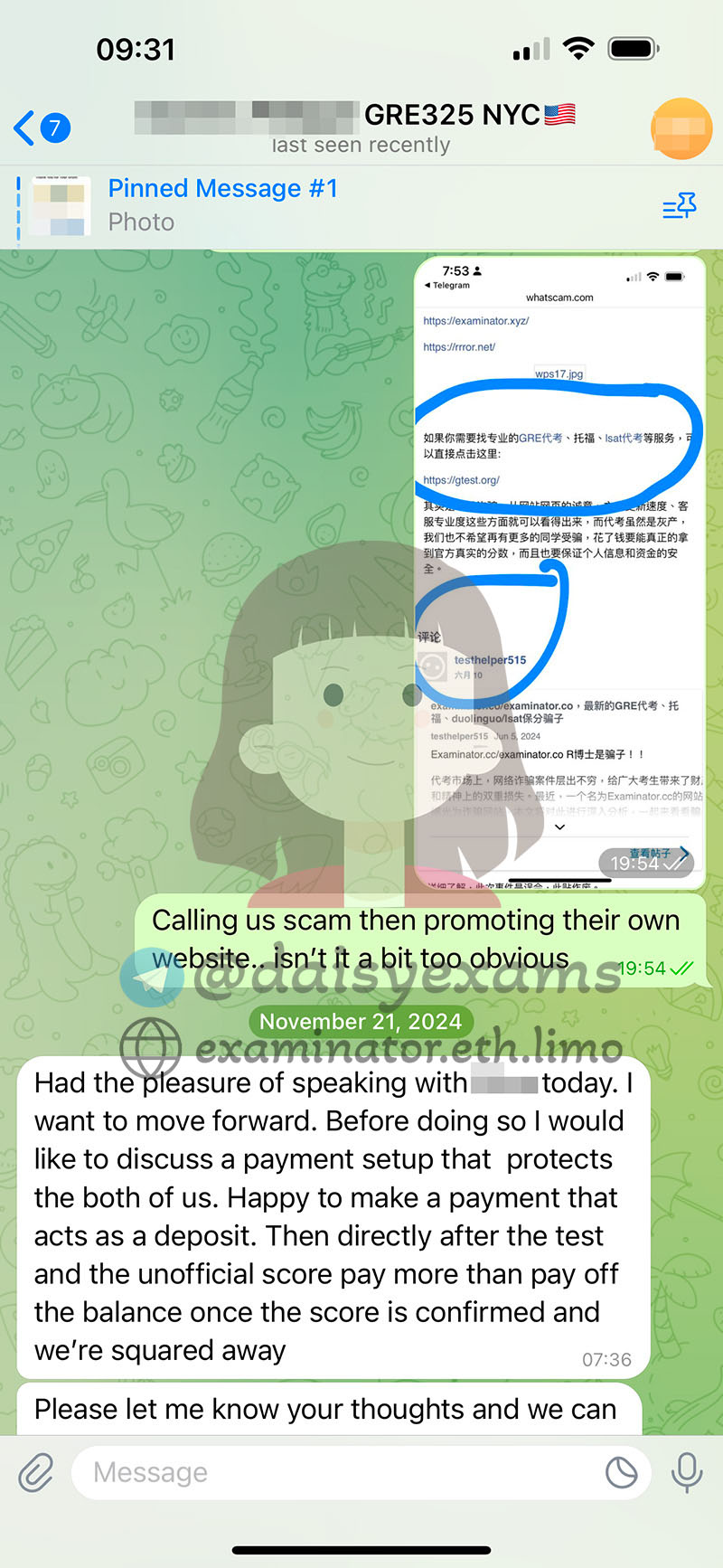
And of course, as part of the onboarding rituals, we explained the situation of the classic low-effort fake reviews posted by the scammer PassPsychometric.com.
Moving Forward With Caution: A Gradual Payment Plan
After verifying everything, talking to a past customer, and seeing through misleading sources, the customer finally decided to move forward. However, they requested a more structured payment plan to reduce perceived risks a more cautious way to minimize perceived risks. They signed up for their GRE test but took a long time to pay the initial deposit, only doing so after we sent a reminder.
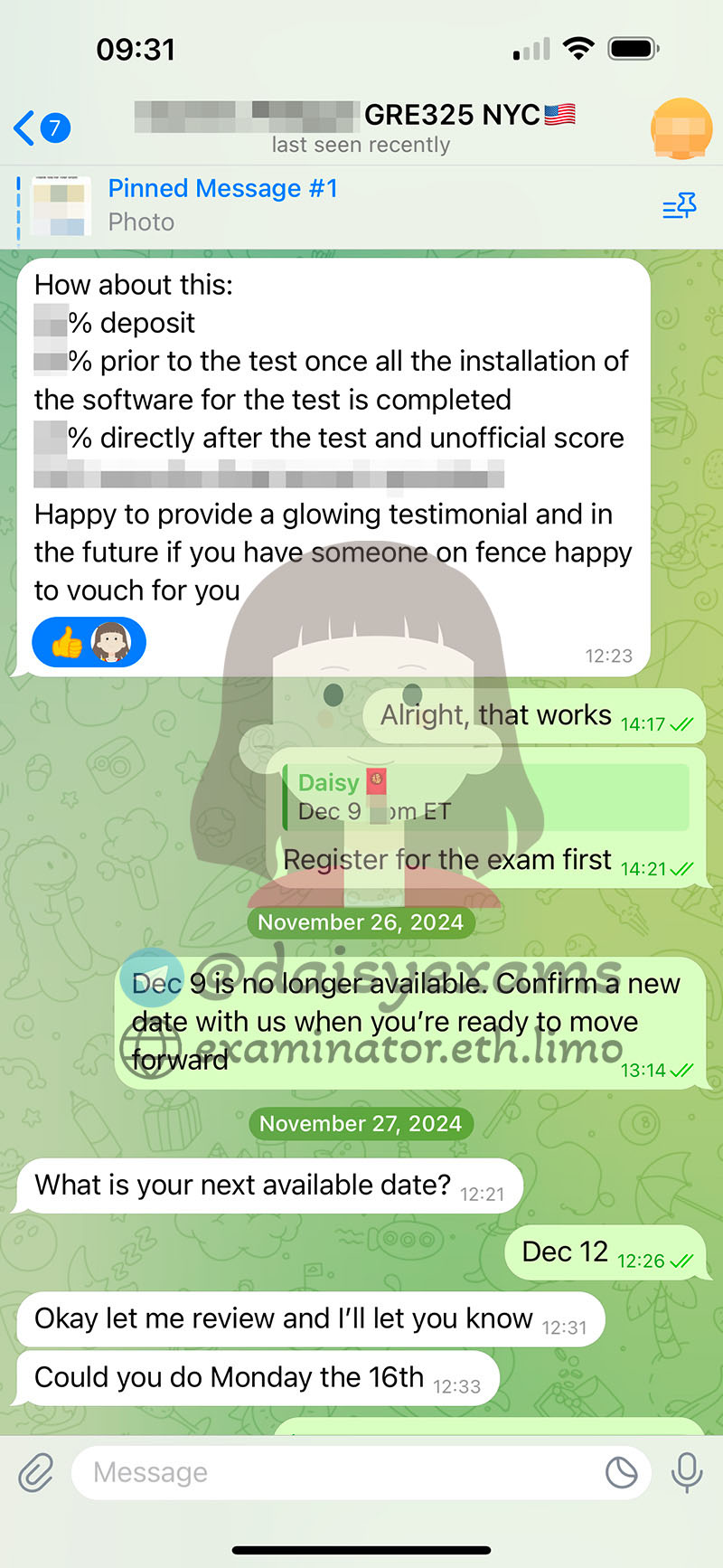
A Smooth GRE Cheating Experience
Once the process started, everything went smoothly.
The customer was concerned about AI-assisted essays, fearing that automated tools might be used. We reassured them that Examinator does not use AI for written responses, ensuring authentic work.

Another common concern was whether our tiered pricing guarantees an exact score. We explained that our pricing structure guarantees a minimum score but does not mean the score will be an exact number. Instead, clients receive any score above their required minimum.
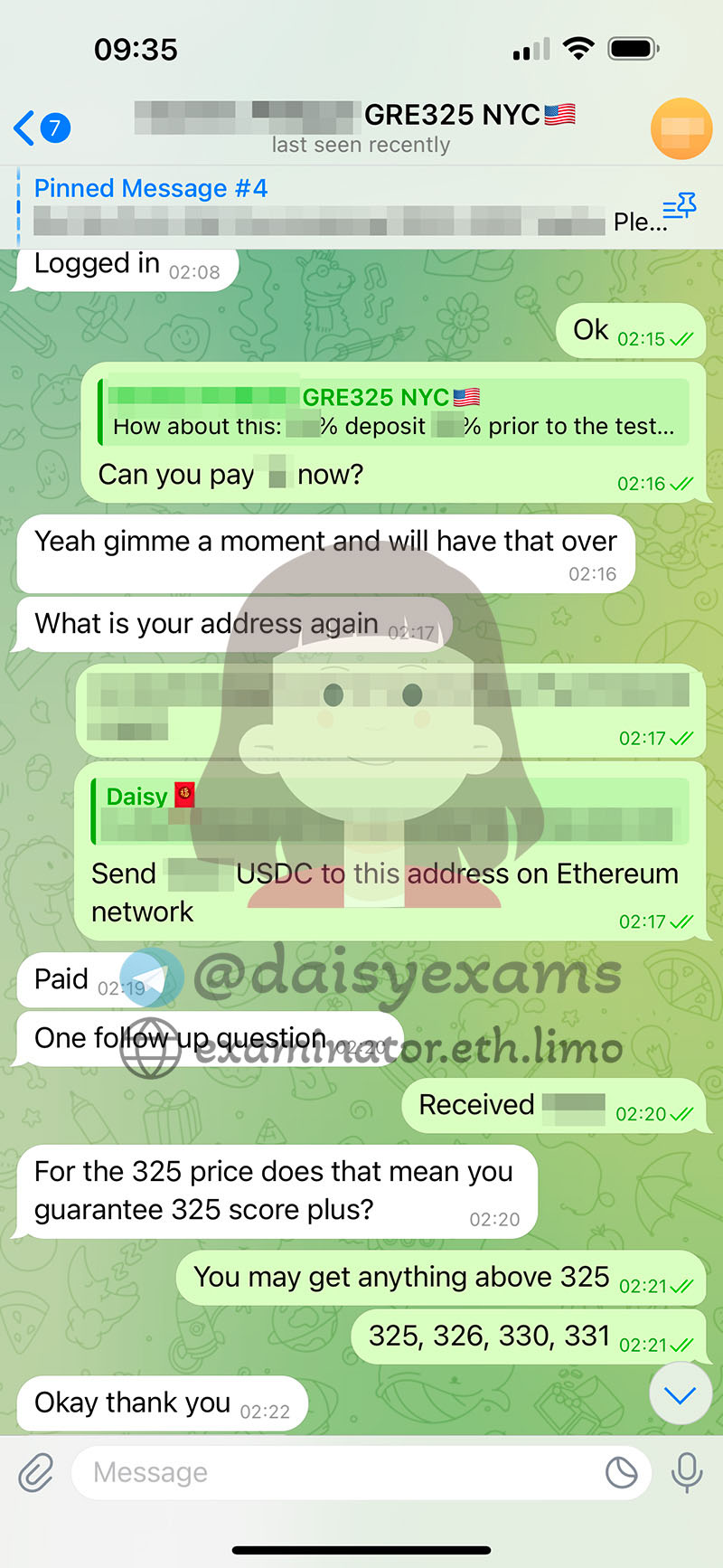
Post-Test and Customer Review
After successfully completing the GRE, the customer needed several reminders before submitting their review.
Ironically, despite their strong dislike of AI-generated content, their initial review seemed AI-written. 🙄 We encouraged them to rewrite it in their own words, which they did after some nudging.
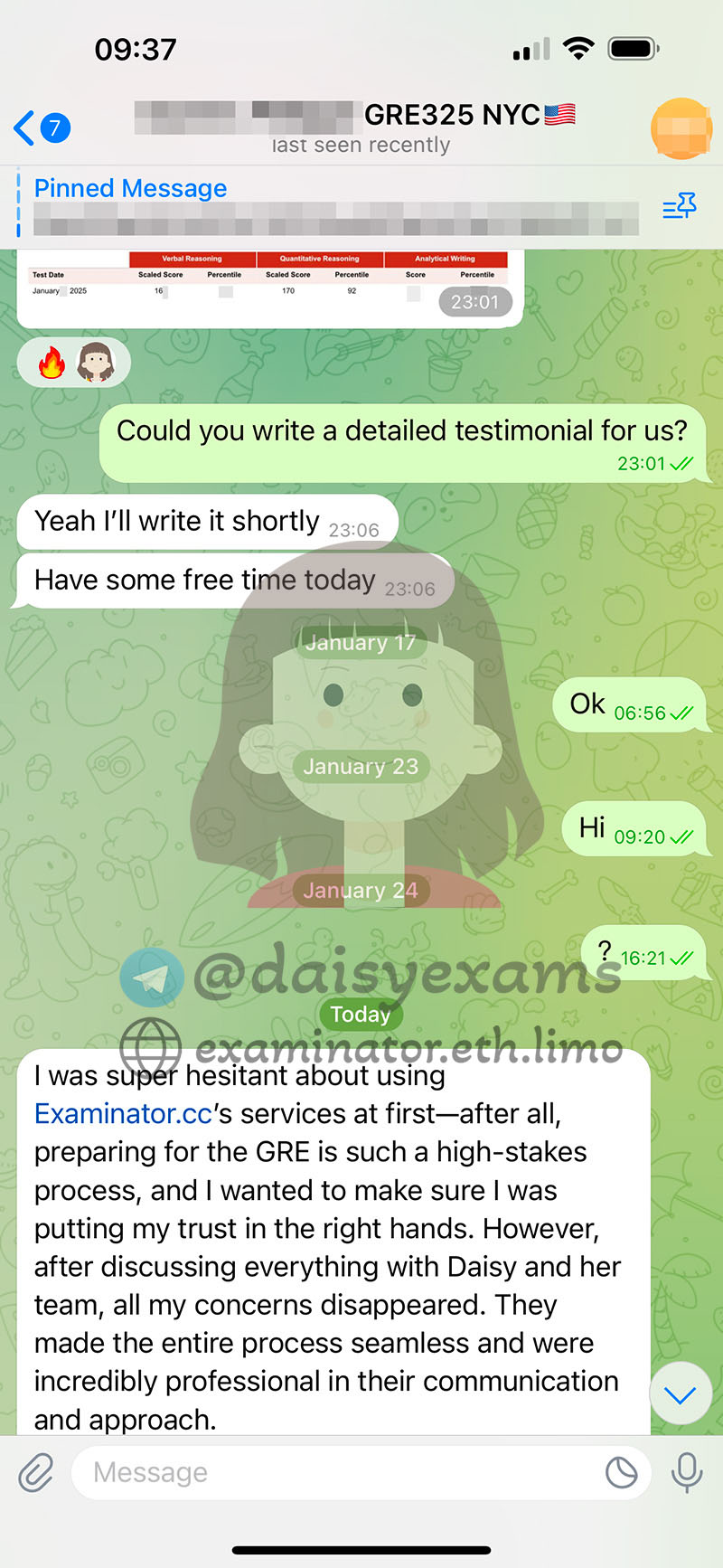
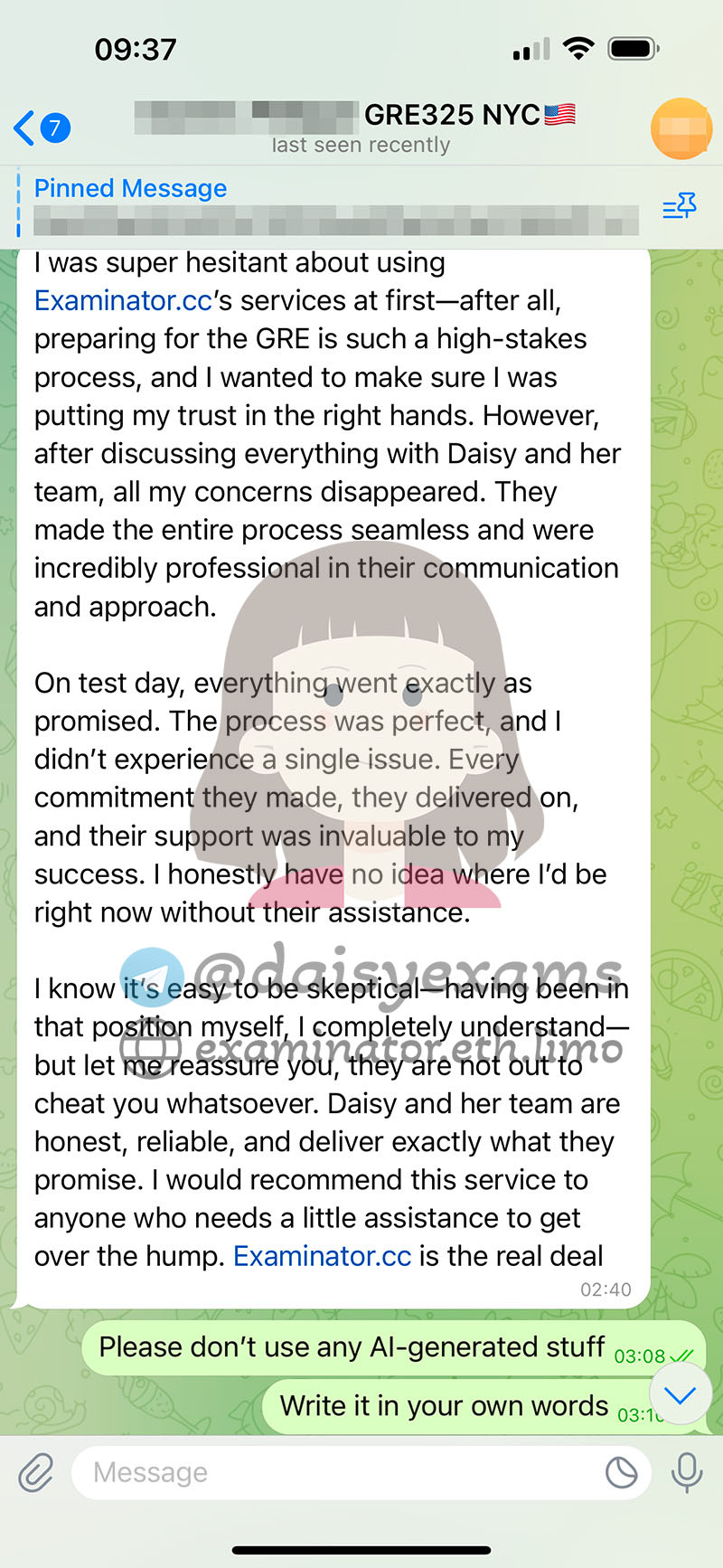
Being totally honest, I was extremely anxious and nervous reaching out to Daisy and her team for assistance.
There were so many thoughts running through my mind: Is this a scam? What if I get caught and get blackballed from taking the exam? What if I don’t get my desired score?
And so many other concerns. From the moment I first made contact, Daisy made sure that all my questions were answered and was as transparent as she could be. Without revealing too much, she was clear and concise about how the process would work and what was expected from me.
I think the biggest sign that I was in good hands was that at no point did I feel pressured into using their services. She laid everything out plainly: *This is what it is—take it or leave it.* That made me feel comfortable enough to take the leap. Their instructions were clear, and if I ever had a question, Daisy and her team were always available to provide clarification.
On test day, I was still anxious and unsure if everything would go smoothly. But Daisy and her team were ready for anything. They ran all their last-minute checks to ensure a seamless experience.
The test was a success—I scored exactly what I needed. I honestly can’t say enough good things about my experience with Daisy and her team. I’m incredibly thankful that I found them, that all their promises were kept, and that everything worked out smoothly!



Final Payment and Conclusion
As expected, the cautious customer took their time making the final payment. However, after some gentle reminders, they made their final payment, officially completing the process.

Despite their initial hesitation, they ended up very satisfied with the service and admitted that their doubts were unnecessary.
Takeaways
- Some customers need a lot of research and reassurance before committing.
- Misinformation—such as fake reviews from competitors—can affect potential clients but can be debunked with facts.
- Even after a good experience, skeptical customers may still hesitate with payments and reviews.
- Speaking with past clients can be a powerful way to build trust.
- Patience and persistence help in handling overly cautious clients, but once trust is built, they often become happy customers.
However, since we work with many customers, if someone is too demanding, we may not be able to accommodate them.
Full chat log is attached.
Update (March 21, 2025): The customer has received multiple school acceptances.


